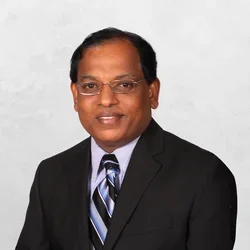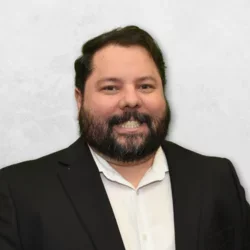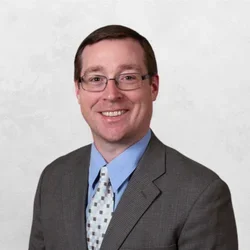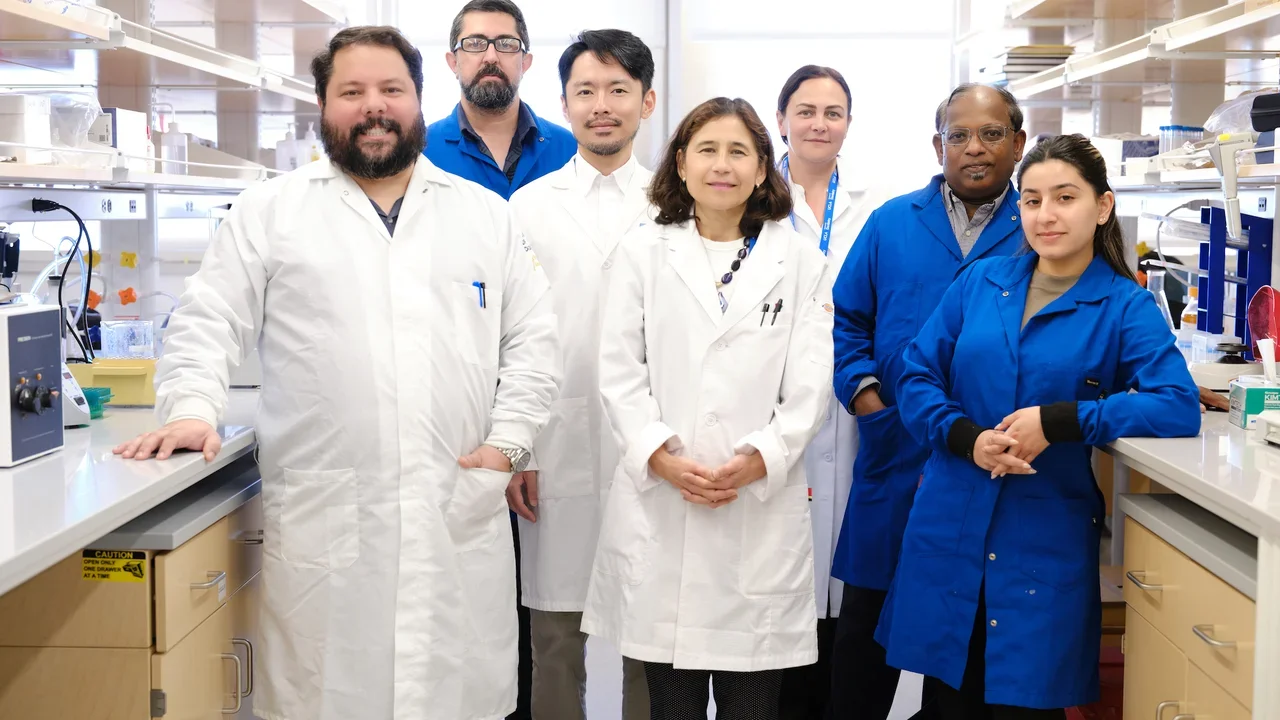Hernandez-Kapila Lab
At the forefront of of the human virome
About
The Hernandez-Kapila Lab focuses on basic, translational, and clinical studies focused on oral and systemic disease connections with a focus on the oral-gut-brain axis, host-microbe/ECM interactions, and the oral microbiome/virome.
As a clinician–scientist with more than 30 years of clinical, research, teaching/mentoring, and administrative experience, Dr. Yvonne Hernandez-Kapila has made important discoveries relating to the microbiome/virome of the oral cavity and its importance in the oral-gut-brain axis. Her work has also identified host-microbe interactions and cellular and molecular mechanisms governing oral cancer carcinogenesis and the pathogenesis of periodontal disease.
Dr. Hernandez-Kapila is a highly experienced investigator and administrator who has been continuously funded by NIH for 30+ years and published more than 150 peer-reviewed publications in high-impact journals. She has long-term service as a council member and grant reviewer for the NIH/NCI/NIDCR, served on editorial boards for high-impact journals/textbooks, and received national research and mentoring awards. In recognition of her contributions to science and mentoring, Dr. Hernandez-Kapila received the American Academy of Periodontology Distinguished Scientist Award in 2019, UCSF Alumni Discovery Award in 2021, Annual Research Lecture for the UCSF School of Dentistry Research and Clinical Excellence Day in 2019, and American Association for Dental Research Irwin D. Mandel Distinguished Mentoring Award in 2019.
Lab Members




Collaborators
- Dr. Christopher Fenno, PhD (UM); NIH R01DE025225
- Dr. Sue S. Yom, MD, PhD (UCSF); NIH R01CA269950
- Drs. Clara Lajonchere, PhD (UCLA), Joseph Petrosino, PhD (Baylor College of Medicine), James Cerhan, MD, PhD (Mayo Clinic); Janice Lee, DDS, MD, MS (NIDCR); U54AG089335
Current Projects and Grants
NIH U54AG089335: Human Virome Characterization Center for the Oral-Gut-Brain Axis
Overall-Project Summary/Abstract The NIH Human Microbiome Project has redefined our understanding of the human bacteriome, opening new avenues of research in the biomedical and behavioral sciences and improving healthcare delivery. However, the human virome remains largely unexplored. In response to this gap, the NIH Human Virome Program (HVP) offers the opportunity to uncover the spectrum of “healthy” viromes across the lifespan, facilitating identification of alterations associated with disease and further advancing biomedical research and healthcare delivery. Toward this goal, we propose to establish this Human Virome Characterization Center (HVCC) for the Oral–Gut–Brain Axis, a known functional unit with a central role in human health. Informed by our team’s long-standing expertise studying these organs and their interconnected physiology, we will create an organizational hub for virome study, leveraging multiple unique and diverse cohorts. Our goal is to identify and characterize the viruses comprising the human virome across the oral–gut–brain axis, providing accurate estimates of its richness and complexity in healthy cohorts across the life/healthspan. In support of this goal, we bring together investigators at several institutions, including UCLA, Baylor College of Medicine, Mayo Clinic, Penn State, USC, UCSD, NIH/NIDCR, with broad experience successfully guiding large NIH programs. We will establish five interacting Cores— Administrative, Biospecimen Collection, Biospecimen Analysis, Data Analysis and Submission, and Ethical, Legal, and Social Implications (ELSI)—that will work together to identify the viromes in numerous patient cohorts diverse in age, race/ethnicity, each derived from the three target organs. Our Cores have interdisciplinary expertise across key areas, including virome/microbiome sequencing, biomedical informatics/data science, and patient recruitment/tissue banking, and will be tasked with handling multiple data types (virome/microbiome, genomic, neuroimaging) to support the broad aims of our HVCC. The Biospecimen Collection Core will leverage prospective cohorts and retrospective biospecimen banks at UCLA, Mayo Clinic, and NIH/NIDCR, as well as several future cohort opportunities (All of US, Together for Change, AIIMS/India). Our Biospecimen Analysis Core will use cutting-edge technologies to sequence the viromes in our biospecimens, and our Data Analysis and Submission Core will analyze the data we collect using innovative bioinformatics, data science, and machine-learning tools to uncover clinical, physiologic, and genetic interactions that shape the human virome. The ELSI Core will provide policies and guidance and conduct original research to explore the ELSI of this work. The Administrative Core will bridge the patient cohort teams with the supporting Cores to ensure seamless operation and coordination with the broader HVP. Our Cores are designed to maximize the integration and sharing of ideas through dynamic, contemporary communication methods, promoting refinement and dissemination of best practices between our group and the wider scientific community. In doing so, this HVCC will provide a unified framework to broadly advance our understanding of the oral–gut–brain virome toward improving human health.
NIH R01CA269950: Oral Microbiome and Inflammatory Status in Antimicrobially Treated Oral Cancer Patients
The incidence of oral squamous cell carcinoma (OSCC), the most common type of head and neck cancer, continues to rise among numerous demographic groups in the US, yet its 5-year survival rate has not improved for several decades. Despite advances in targeted therapy, immunotherapy and other novel adjuvant regimens, patients with locoregionally advanced and recurrent/metastatic disease continue to have extremely poor outcomes, underscoring the need for more effective treatments for OSCC, which often goes undiagnosed until it has reached late stages. Primary risk factors for OSCC include tobacco use, alcohol consumption, and for oropharyngeal cancers, HPV infection, but cancer incidence is influenced by additional elements such as anatomic site, patient demographics, and likely the individual’s oral microbiome. Given that cases of OSCC are increasing despite targeted head and neck cancer prevention efforts in the US such as smoking cessation and HPV vaccination, there is a strong rationale for exploring other modifiable risk factors that, together with new therapies, can improve outcomes for patients with OSCC as well as other aggressive head and neck cancers. The oral microbiome is a complex and dynamic community of commensal organisms that can become imbalanced (“dysbiotic”) in response to dietary intake, tobacco and alcohol use, and poor dental hygiene. Dysbiosis can pre-dispose an individual to oral disease, including cancer, by enriching for bacterial pathogens that promote carcinogenesis, secrete carcinogenic compounds, and promote chronic inflammation. Thus, reversing oral dysbiosis is a promising approach for protecting against tumorigenesis. The food additive nisin, which is bactericidal against a broad range of pathogens, has been shown to restore oral microbiome diversity, suppress inflammation, and stimulate anti-tumor cellular responses in vitro and in a polymicrobial mouse model of oral cancer, while maintaining its well-established safety profile. However, the potential clinical benefit of nisin for treating OSCC in humans has not been investigated. Here, we propose a Phase I/IIa trial to establish the tolerability and feasibility of administering nisin to OSCC patients who represent high-risk populations. In parallel, we will perform mechanistic studies of nisin and its effects on oral microbiome community structure, inflammasome expression, and anti-cancer cellular responses of the study participants. We will also analyze the emergence of nisin resistance among key oral bacteria, which could provide insight into circumventing nisin resistance in other clinical contexts. We hypothesize that nisin will be well-tolerated among OSCC patients and will counter dysbiosis by inhibiting bacterial pathogen growth and promoting an anti-tumorigenic environment via immunomodulation and anti-cancer cell activity. Our long-term goals are to validate nisin as a promising candidate for OSCC treatment and demonstrate that oral dysbiosis is a major driver of tumorigenesis in humans that can be manipulated, thus highlighting the important yet mostly unrecognized protective role that antimicrobials can exert against cancer in humans.
NIH R01DE025225: Treponema–Host Cell and Tissue Interactions
ABSTRACT The goal of this research is to characterize the role of Treponema denticola surface proteins in interaction of this human oral spirochete with host tissue, thereby gaining insight into mechanisms by which T. denticola contributes to initiation and progression of periodontal disease. We focus on analysis of T. denticola protein complexes that directly affect cells isolated from tissue comprising the periodontal ligament (PDL) that comprises the junction between the tooth and the alveolar bone of the tooth socket: specifically the PrtP lipoprotein protease complex (dentilisin) and the oligomeric Msp protein. Our overall hypothesis is that dentilisin and Msp are major contributors to T. denticola cytopathic behavior in periodontal disease, In this context we will examine specific domains of dentilisin and Msp, as well as the T. denticola lipooligosaccharide component of the outer membrane. To characterize their specific roles in microbe-host interactions, our approach is to utilize purified native and recombinant proteins as well as isogenic T. denticola strains carrying defined mutations in individual components of these outer membrane complexes. We will first extend our ongoing studies characterizing dentilisin and Msp assembly in the Td outer membrane. Then, to further studies of host responses to challenge by Td and its specific components, we will then characterize in a cell model T. denticola-induced dysregulation of TLR/MyD88 and Integrin/FAK signaling mechanisms and consequences for the cytoskeleton as well as expression and activity of matrix metalloproteinases. We will determine the extent to and the mechanisms by which specific T. denticola components contribute to tissue destruction in a mouse model of periodontal disease. Finally, we will test the ability of the the antimicrobial peptide nisin to modulate T. denticola-induced dysbiotic signaling in both the cell and animal models. Our research team is uniquely positioned to conduct these studies, with combined expertise in spirochete molecular biology, extracellular matrix biology and cytopathology of inflammatory diseases. Completion of this project will contribute to both basic knowledge of spirochete molecular biology and to understanding of microbe-host interactions in chronic infections such as periodontal diseases.
K12 training grant K12 DE027830 UCLA Dental Specialty PhD Program
PROJECT SUMMARY Established in 2018, the overarching goal of the University of California – Los Angeles (UCLA) Dental Specialty PhD Program (DSPP) within the UCLA School of Dentistry (SOD) is to promote the research career development of highly productive, early-career dentist-scientists and to facilitate their transition to independent investigators capable of addressing complex challenges within the dental profession and of advancing dental medicine. The UCLA SOD aspires to transform dental education and research by equipping trainees with experiences that prepare them to be critical thinkers, effective communicators, and compassionate, skilled clinicians capable of delivering patient-centered care in a rapidly evolving health care environment. To this end, the UCLA DSPP successfully recruited and retained two outstanding DSPP Scholars in the prior funding period who have made notable contributions in research related to oral health, one of which is female. To support the UCLA DSPP, the UCLA SOD has established outstanding postgraduate dental training programs that include seven Graduate Medical Education (GME)-supported dental specialty residency programs. The proposed K12 research training includes both PhD research and clinical specialty-oriented research guided by primary research mentors and clinical specialty mentors, respectively. The DSPP Scholars will complete a 3-year clinical specialty training block funded by the GME program followed by a 4.5-year PhD training block funded by the K12 award. Integration of the clinical specialty training and PhD research will be ensured through careful construction of cohesive mentorship teams, sustained clinical effort during the PhD program, coordinated input and guidance on selection of the research focus, inclusion of a critical authentic task, continual progress monitoring, and an established conflict resolution plan. Efforts will be made to achieve diversity of representation among DSPP Scholars and to recruit candidates from historically marginalized communities, including candidates from within the UCLA SOD and from the Texas A&M University College of Dentistry. The UCLA DSPP will provide effective, evidence-based pedagogy, providing all DSPP Scholars an equitable and inclusive learning experience. Finally, Scholars will enter the transition year supported by UCLA SOD to conduct postdoctoral research to facilitate their transition to an independent research career. In the current renewal, the UCLA DSPP seeks to advance ongoing efforts to increase the critical mass of dental school faculty who contribute to both clinical and scientific excellence, ensure diverse representation among future dentist-scientists, and construct collaborative networks involving clinician-scientists equipped with unique skills to address patient-oriented challenges and to transform the future of dentistry.
Publications
- Gao L, Kuraji R, Zhang MJ, Martinez A, Radaic A, Kamarajan P, Le C, Zhan L, Ye C, Range H, Sailani MR, Kapila YL. Nisin probiotic prevents inflammatory bone loss while promoting reparative proliferation and a healthy microbiome. NPJ Biofilms Microbiome
- Gao L, Kang M, Zhang MJ, Reza Sailani M, Kuraji R, Martinez A, Ye C, Kamarajan P, Le C, Zhan L, Rangé H, Ho SP, Kapila YL. 2020. Polymicrobial periodontal disease triggers a wide radius of effect and unique virome. NPJ Biofilms Microbiomes 6(1):10. PMI
- Ganther S, Radaic A, Malone E, Kamarajan P, Chang NN, Tafolla C, Zhan L, Fenno JC, Kapila YL. Treponema denticola dentilisin triggered TLR2/MyD88 activation upregulates a tissue destructive program involving MMPs via Sp1 in human oral cells. PLoS Patho
- Zhao C, Kuraji R, Ye C, Gao L, Radaic A, Kamarajan P, Taketani Y, Kapila YL. Nisin a probiotic bacteriocin mitigates brain microbiome dysbiosis and Alzheimer's disease-like neuroinflammation triggered by periodontal disease. J Neuroinflammation. 2023 O
- Kuraji R YC, Zhao C, Gao L, Martinez A, Miyashita Y, Radaic A, Kamarajan P, Le C, Zhan L, Range H, Sunohara M, Numb Y, Kapila Y. . Nisin Lantibiotic Prevents Liver Steatosis and Mitochondrial Oxidative Stress Following Periodontal Disease by Abrogating O
